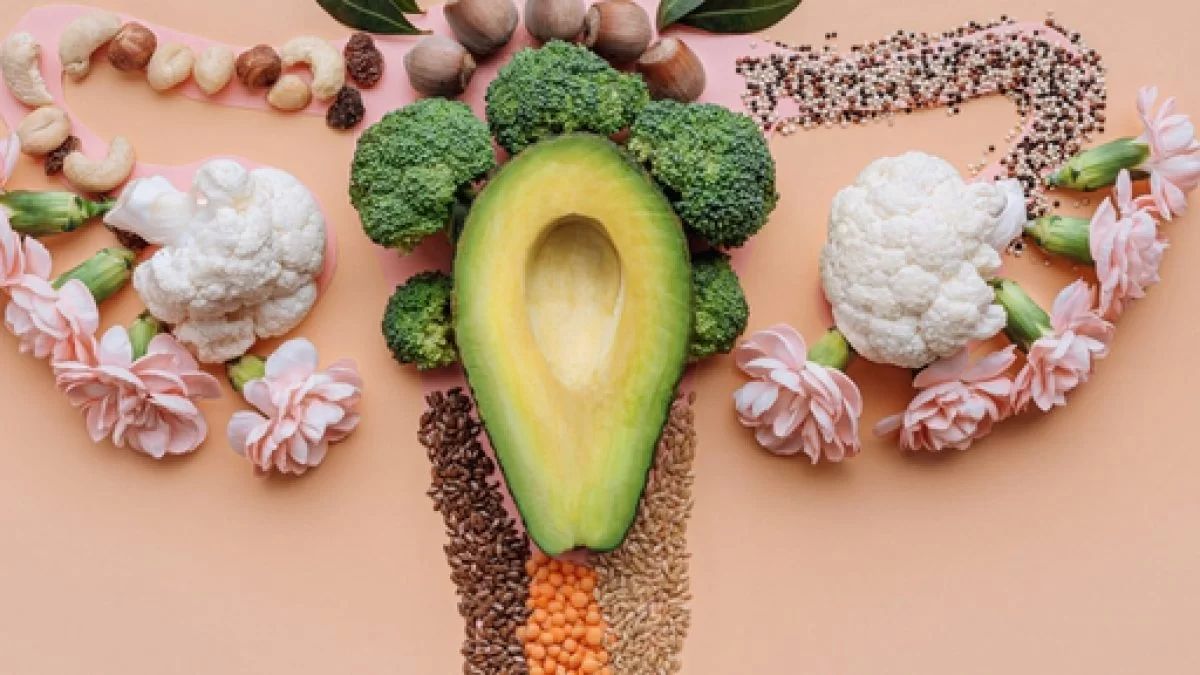 Aditya Birla Capital
Aditya Birla Capital
For many women, menstruation brings a wave of discomfort, ranging from cramps and headaches to nausea and fatigue. While these symptoms are common, they can be managed effectively through strategic dietary choices. Research has consistently shown that certain foods can help alleviate menstrual discomfort, while others may exacerbate it. Understanding the connection between nutrition and menstrual health allows women to make informed dietary decisions, ensuring a more comfortable cycle.
The Role of Nutrition in Menstrual Health
A well-balanced diet plays a crucial role in regulating hormonal activity, reducing inflammation and managing common menstrual symptoms. Scientific studies emphasize the importance of specific micronutrients, iron, zinc, vitamin D and folate that are often deficient in women of reproductive age. Proper intake of these nutrients supports energy levels, stabilizes mood and minimizes bloating and cramping.
Moreover, a diet rich in fresh, unprocessed foods has been linked to more regular menstrual cycles. Omega-3 fatty acids, calcium and vitamin D, in particular, have demonstrated effectiveness in easing severe premenstrual syndrome (PMS) symptoms. Beyond symptom management, proper nutrition helps maintain hormonal equilibrium, supports iron levels and reduces systemic inflammation.
Conversely, poor dietary habits, particularly those high in refined sugars and saturated fats, can intensify menstrual symptoms. Studies have found that excessive sugar intake can trigger inflammation, leading to increased pain and discomfort. Additionally, the use of anti-inflammatory medications for menstrual pain can further deplete essential nutrients, making a nutrient-dense diet even more critical.
Optimal Foods for Menstrual Comfort
The right dietary choices can significantly impact how the body responds to menstrual symptoms. The following foods have been found to provide natural relief and support overall menstrual well-being:
1. Hydration with Water and Water-Rich Fruits
Adequate hydration is essential for reducing bloating and preventing dehydration headaches. Studies recommend consuming at least 2.7 liters of water per day to replace lost fluids. Water-rich fruits such as watermelon and cucumbers further aid in hydration while offering essential vitamins and minerals.
2. Leafy Greens for Iron and Magnesium
Iron levels often drop during menstruation, contributing to fatigue and dizziness. Dark leafy greens such as spinach and kale are excellent sources of iron and magnesium, both of which help in muscle relaxation and pain reduction.
3. Ginger and Turmeric for Anti-Inflammatory Benefits
Ginger has long been recognized for its pain-relieving properties. Clinical studies suggest that consuming 750–2,000 mg of ginger powder during the first few days of menstruation can effectively reduce pain levels. Turmeric, rich in curcumin, has also been shown to alleviate PMS symptoms by lowering inflammation and promoting hormonal balance.
4. Dark Chocolate for Magnesium and Mood Stability
Dark chocolate, particularly those with a high cocoa content (69% or more), is rich in magnesium, which aids in muscle relaxation and reduces period pain. A study revealed that consuming 40 grams of dark chocolate daily during the first three days of menstruation significantly lessened discomfort.
5. Lentils, Beans and Nuts for Iron and Protein
Plant-based proteins, such as lentils and beans, help stabilize blood sugar levels and sustain energy throughout the day. They are also high in iron, making them an excellent dietary choice for combating menstrual fatigue.
6. Yogurt and Tofu for Probiotics and Calcium
Yogurt’s probiotic content supports gut health and may help prevent yeast infections, which some women experience during menstruation. Tofu, a plant-based protein source, is rich in iron, magnesium and calcium, nutrients essential for alleviating PMS symptoms.
7. Peppermint Tea for Digestive Comfort
Peppermint tea has been studied for its ability to ease menstrual pain and discomfort. Research indicates that peppermint extract can alleviate nausea, bloating and digestive issues commonly associated with menstruation.
Foods to Avoid During Menstruation
While certain foods support menstrual health, others may intensify discomfort. Avoiding the following can help manage symptoms more effectively:
1. Excess Salt, Sugar and Processed Foods
High sodium intake leads to water retention and bloating, while excessive sugar consumption causes blood sugar fluctuations that may worsen mood swings and fatigue. Studies have shown that refined sugars trigger inflammatory responses, exacerbating cramps and discomfort.
2. Caffeine and Alcohol
Caffeine has been linked to prolonged and heavier menstrual cycles, as well as heightened anxiety and cramping. Gradually reducing caffeine intake, rather than quitting abruptly, may help minimize withdrawal headaches. Alcohol, on the other hand, acts as a diuretic, leading to dehydration and increased menstrual discomfort.
3. Spicy Foods and Digestive Irritants
Spicy foods can cause stomach irritation, nausea and diarrhea, common concerns during menstruation. Women who experience heightened digestive sensitivity during their cycle may benefit from limiting spicy foods.
4. Foods that Trigger Sensitivities
During menstruation, hormonal changes can amplify food sensitivities. Studies have highlighted a correlation between lactose intolerance and PMS symptoms, making it important for women to avoid foods that typically cause digestive distress.
Conclusion: A Proactive Approach to Menstrual Health
Managing menstrual discomfort through diet is a scientifically supported strategy that enhances overall well-being. Women who incorporate period-friendly foods such as dark chocolate, ginger and leafy greens, often experience milder symptoms. Conversely, excessive salt, sugar, caffeine and alcohol can worsen discomfort and disrupt hormonal balance.
Rather than focusing solely on diet during menstruation, maintaining healthy eating habits throughout the month provides long-term benefits. By tracking food triggers and incorporating nutrient-dense options, women can develop a personalized approach to menstrual health that fosters comfort and stability. A well-informed diet is not just a temporary remedy, it is a sustainable way to support a balanced and symptom-free menstrual cycle.
